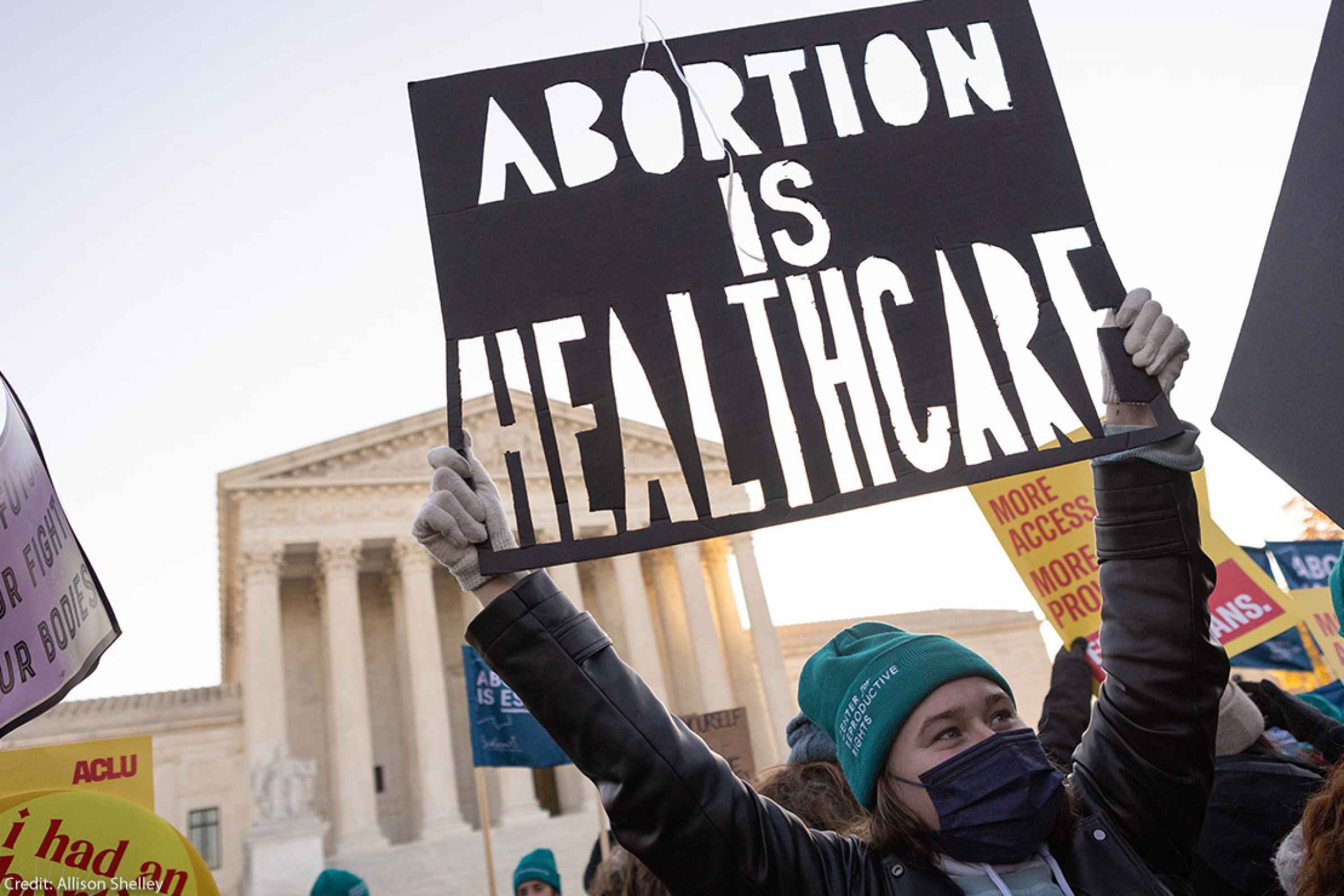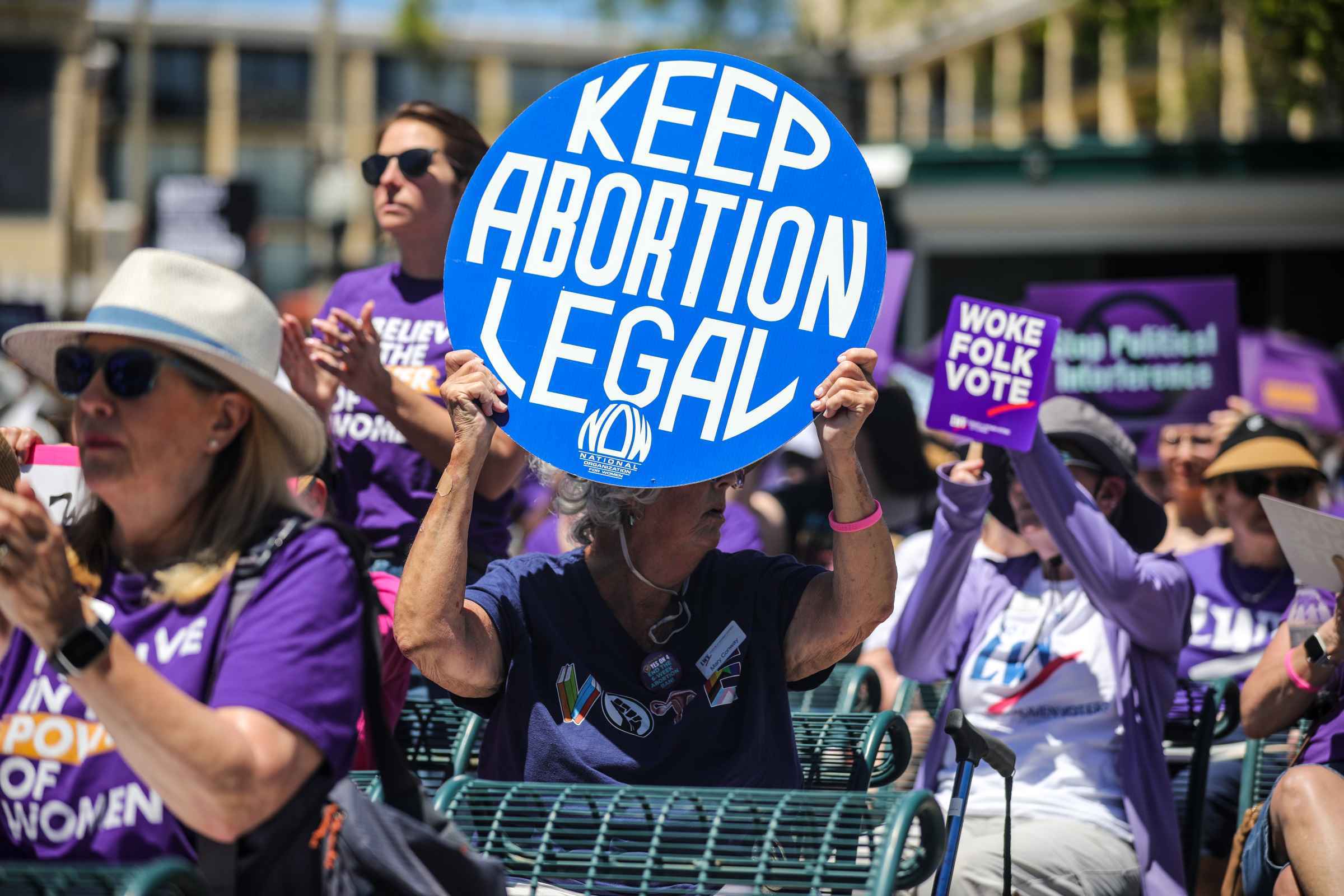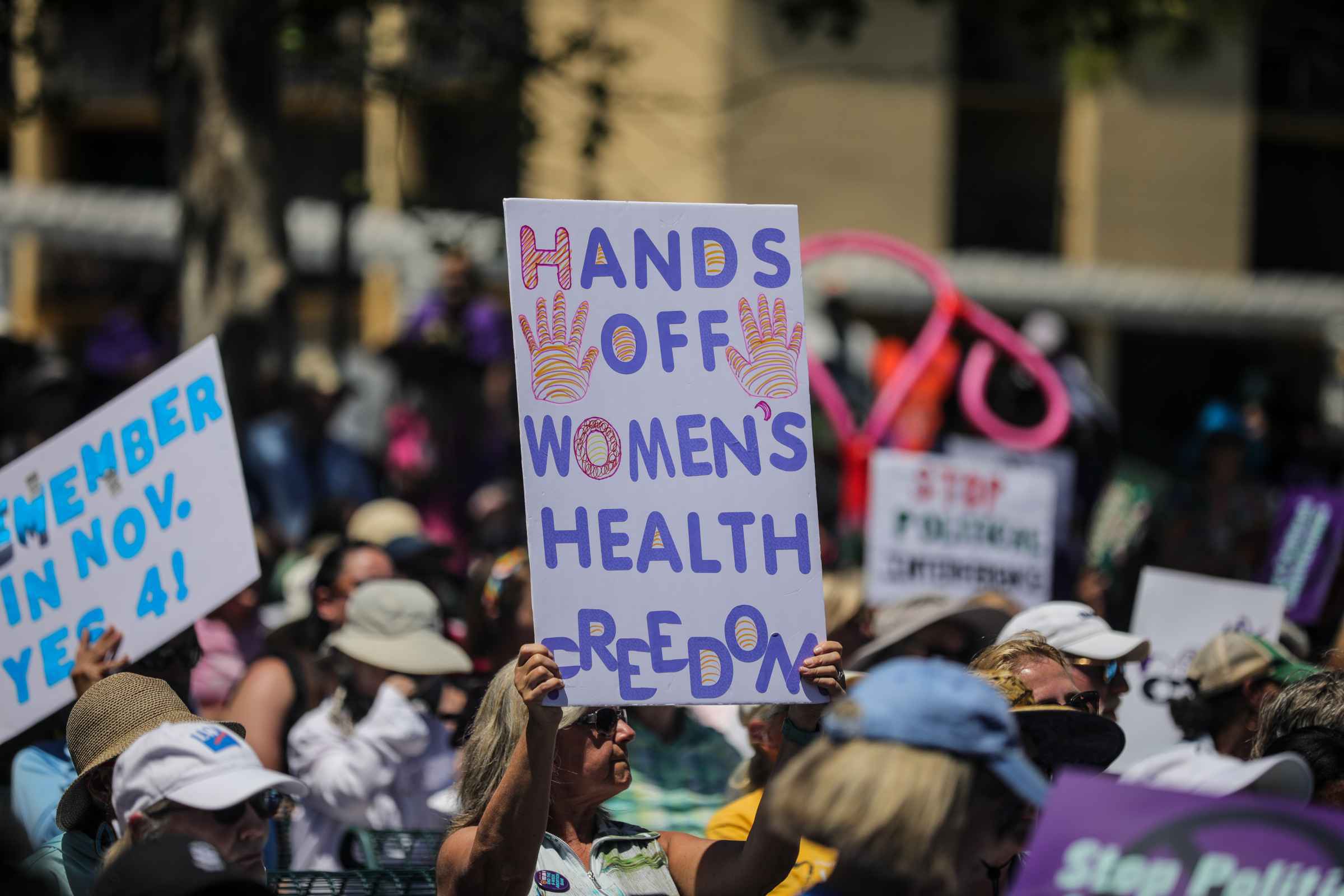
Everyone should be able to access the health care they need—without politicians interfering with their medical decisions.
Fifty-seven percent of Floridians voted to remove government interference with abortion, yet state lawmakers have ignored the will of the people. Florida’s Governor and legislature continue to force a dangerous near-total abortion ban that went into effect on May 1, 2024. This extreme abortion ban criminalizes abortion before many people even realize they are pregnant. It disregards personal autonomy, undermines medical professionals, and endangers lives. Floridians made their voices clear: abortion should be a private medical decision, not a political debate.
The ACLU of Florida will never stop fighting for our freedom to make personal medical decisions without government interference. These resources will help you learn more about your rights in Florida and how to protect them.
On this page:
- Florida's Extreme Abortion Ban
- Facts About Abortion and Trusted Sources
- Additional Information on Abortion Access

FLORIDA'S EXTREME ABORTION BAN
WHAT YOU NEED TO KNOW
Current Status: Florida currently has a near-total abortion ban in effect, making it virtually impossible for most people to access an abortion in Florida.
When did this extreme abortion ban go into effect in Florida? May 1, 2024.
Who does the abortion ban affect? This dangerous abortion ban will impact you or anyone you know needing access to an abortion in Florida.
THE TRUTH ABOUT FLORIDA’S 6-WEEK ABORTION BAN
Can I access an abortion up to six weeks after learning I’m pregnant? No. This extreme ban outlaws abortion before many people even realize they are pregnant.
Is it six weeks from conception? No. The law starts counting from the first day of your last menstrual period, meaning you could be considered “6 weeks pregnant” just two weeks after a missed period.
What does this mean in practice? The law makes it virtually impossible to:
- Confirm pregnancy early enough
- Schedule and attend two state-mandated, in-person doctor appointments at least 24 hours apart
- Get an abortion before the deadline expires
Abortion Medication & Telehealth Bans
- Florida bans abortion medication from being sent by mail
- Abortion medication must be dispensed in person by a physician
- Law enforcement has not clarified how it will enforce this provision
Exceptions Do Not Protect Pregnant Patients
- Rape, incest, and human trafficking survivors must provide documentation to access abortion before 15 weeks. There are NO exceptions after 15 weeks.
- Health exceptions are vague and dangerous
- Pregnant people have been forced to wait until they are on the brink of death or carry doomed pregnancies to term
Criminalization of Abortion
- Doctors who provide abortions face felony charges, up to 5 years in prison, and fines of up to $5,000.
Need an Abortion? Visit IneedanA.com for up-to-date information on where you can safely access abortion services.

FACTS ABOUT ABORTION
Floridians Support Abortion Access
- The vast majority of Floridians believe abortion should be legal in all or most cases.
- Incorporate Amendment 4 statistics here
- Highlight how Amendment 4 received a higher number of votes than all or most candidates running for office.
- Nationwide, 72% of people agree that the decision about whether to have an abortion should belong solely to the pregnant person
Abortion is Safe
- Abortion medication and abortion procedures are safe.
- In fact, abortion is much safer for women than pregnancy and childbirth. Pregnancy and childbirth complications often create significant health risks for pregnant patients, disproportionately impacting Black and Brown women. Florida’s maternal death rate is 26.8 deaths per 100,000 live births. Moreover, the maternal mortality rate for Black women during pregnancy and delivery is almost 3x higher than for white women.
- Medication abortion (abortion pills) are incredibly safe and account for close to 60% of abortions.
- According to the CDC, the vast number of abortions (96%) occurred at or before 15 weeks gestation, while 3% occurred from 16 to 20 weeks gestation, and just 1% of abortions were performed at or after 21 weeks.
- Reasons individuals seek abortions later in pregnancy include medical concerns such as fetal anomalies or maternal life endangerment, as well as barriers to care that cause delays in obtaining an abortion. Amniocentesis (prenatal testing to detect genetic disorders) is performed after the 15th week of pregnancy.
People from All Walks of Life Get Abortions
- 6 out of 10 Americans know someone who’s had an abortion.
- Nearly 1 in 4 women in the U.S. will have an abortion by age 45.
- The majority of abortion patients have had at least one previous birth.
- 41% of abortion patients live below the federal poverty line.
- Nearly equal proportions of people who obtained an abortion were Black (29%), Latinx (30%), and non-Hispanic White (30%).
- More than half of those who obtained an abortion were in their 20s, with 33% between the ages of 20–24 and 28% between 25–29.
Millions of Women and Girls Face Barriers to Abortion Care
- About 21.5 million women and girls of reproductive age live in states that ban abortions completely, or after six weeks of pregnancy. That’s about 29% of women ages 15 to 49.
- As of June 2024, 14 states have ceased nearly all abortion services and three states have enacted six-week bans.
- Since Roe v. Wade was overturned, and abortion bans have increased in the states, there has been a sharp increase across the country in young people requesting and undergoing sterilization. Tubal ligations doubled from June 2022 to September 2023, and vasectomies increased over three times during that same time.
Don’t Fall for Disinformation
- Find trusted abortion resources: The Guttmacher Institute, INeedanA.com, AbortionFunds.org
- There’s a lot of misleading information out there about abortion. We aim to dispel some of this misinformation and provide individuals with clear and accurate knowledge. We have embedded links in the above facts to make it easy for you to review the sources of information and learn more about abortion access in the United States.
KNOW YOUR RIGHTS & LEGAL PROTECTION
Protect Yourself When Seeking an Abortion
- Digital Privacy: To protect your digital privacy when planning your abortion, click here.
- Legal Defense: If you are being investigated, contact If/When/How’s Repro Helpline: 844-868-2812.
- Financial Assistance: Visit AbortionFunds.org for help covering costs.
Minors Seeking an Abortion
- In 2020, the Florida Legislature passed a law requiring parental consent in addition to parental notification for most minors to access abortion care.
- Minors must have a parent or guardian sign a specific form consenting to an abortion, which must be notarized.
- Minors can ask a judge to waive the requirement for parental notification and consent. This is called judicial bypass. You can learn more about obtaining a judicial bypass here: TeenAbortionFlorida.com.
Undocumented & Incarcerated Individuals
- Undocumented immigrants have a right to healthcare in Florida, including abortion services. Undocumented immigrants face numerous additional obstacles to receiving such care in Florida.
- Pursuant to the National Detention Standards, Immigration and Customs Enforcement (ICE) has an obligation to provide abortion services to individuals in immigrant detention within two working days if requested.
Need Legal Help?

ADDITIONAL INFORMATION ON ABORTION ACCESS
Who Voted for Florida’s Abortion Ban?
-
Florida House: 70 voted in favor, 40 voted against. You can see how your House Representative voted here.
- Florida Senate: 26 voted in favor, 13 voted against. You can see how your State Senator voted here.
How Did We Get Here?
-
For over 30 years, Florida’s State Constitution protected abortion under the right to privacy.
- 2022: Florida passed a 15-week abortion ban, challenged in court by healthcare providers.
- 2023: The Legislature passed a 6-week abortion ban, signed into law by Gov. DeSantis.
- April 1, 2024: The Florida Supreme Court upheld the 15-week ban, paving the way for the 6-week ban.
- May 1, 2024: The 6-week ban took effect, drastically restricting access.
- This follows the U.S. Supreme Court’s 2022 ruling in Dobbs v. Jackson Women’s Health Organization, which overturned Roe v. Wade.
What Does Abortion Access Look Like Now?
-
Ban at 6 Weeks: Abortion is illegal six weeks after the first day of the last menstrual period, just two weeks after a missed period for those with regular cycles.
- Two In-Person Appointments Required:
- First Appointment: Mandatory disclosures, ultrasound, counseling.
- Second Appointment (after 24+ hours): Procedure or medication provided.
Your Rights to Abortion in Florida
-
Abortion is still legal up to six weeks gestation with very limited exceptions.
- Where to Get an Abortion:
- I Need An A
- National Abortion Federation Hotline: 1-800-772-9100
Costs & Financial Assistance
-
Insurance: Some private plans cover abortion—check with your provider.
- Medicaid: Only covers abortion in cases of rape, incest, or life endangerment.
- Discounts: Many clinics offer reduced costs for Medicaid recipients.
- Financial Assistance:
- Visit I Need An A for local abortion funds.
- Donate to Abortion Funds: AbortionFunds.org
Legal & Medical Support
-
Legal Help: If/When/How Legal Helpline – 844-868-2812
- Medical Questions: Miscarriage & Abortion Hotline – 833-246-2632
How You Can Help
-
Become an ACLU of Florida Volunteer
- Donate to Florida Abortion Funds: AbortionFunds.org
- Volunteer with Other Reproductive Rights Groups: floridareprofreedom.org
The people of Florida have spoken. It’s time for our leaders to listen.




